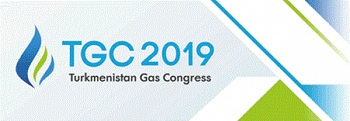
The tenth annual international Gas Congress of Turkmenistan will start today at Awaza, the national tourist zone of Turkmenistan at the Caspian coast.
The two-day event has been organized by the state concern Turkmengaz in collaboration with the event organizer Turkmen Forum and support from the Gaffney Cline & Associates.
The Gas Congress brings together the industry leaders from the public and private sectors including the delegations from the partner countries, international organizations, and Exxon Mobil, Shell, PJSC Gazprom, Petronas, CNPC, Hyundai, Kawasaki, NAPECO, Vitol, Dragon Oil, ENI, Buried Hill, LG, Gaffney, Cline & Associates, etc.
There would be plenary sessions focused on the current areas of gas sector:
- Gas – The fuel of the Future
- TAPI – The pipeline for peace and stability
- Pipeline projects – Key elements of energy security and sustainability
- Gas monetization – A route to diversification and growth
- Cooperation in the oil and gas industry
According to the organizers, here are the main objectives of the Gas Congress:
- Development and strengthening of international partnerships with Turkmenistan in the oil and gas business
- Comprehensive expert assessment of the investment potential of Turkmenistan’s gas industry and an exchange of experience with those companies already involved
- Presentation by the Turkmen government of new investment projects in the gas/chemical sector and with improved terms to enhance competitiveness
- Discussion of progress and key developments on the TAPI gas pipeline project
Market Overview (from event website)
Turkmenistan is a major player in the Asian gas market. The country’s hydrocarbon resources are estimated at over 71 billion tons of oil equivalent, that is over 20 billion tons of oil and over 50 trillion cubic meters of natural gas. Given these figures, as of today, Turkmenistan holds the world’s fourth largest proven natural gas reserves, after Russia, Iran and Qatar.
Currently Turkmenistan’s largest customer is the People’s Republic of China. Nearly 40 (forty) billion m3/year (BCMA) of the natural gas are currently supplied through three strings (A, B and C) of the Turkmenistan-Uzbekistan-Kazakhstan-China transnational gas pipeline, commissioned in December 2009.
Upon completion of the fourth D string, the annual Turkmen natural gas supply is intended to reach a contractual 65 billion BCMA. Turkmenistan also has the technical capability to supply natural gas to Iran (South) and Russia (North). Negotiations on these are currently underway.
Turkmenistan is also proceeding with the Turkmenistan-Afghanistan-Pakistan-India (TAPI) gas pipeline. The construction of the total 1,814 kilometers length of the TAPI gas pipeline, with a capacity of 30 BCMA started in December 2015. Currently, the 214‑kilometer Turkmen section of TAPI is being laid, and construction works on the Afghan section were also launched in February 2018.
TAPI is planned to go through the Afghan cities of Herat and Kandahar, through the Pakistani cities of Quetta and Multan, and finally to reach the settlement of Fazilka on the Pakistan-India border. The project is supported by the United States, Russia and several other countries, as well as major international financial institutions, in particular, the Asian Development Bank.
In addition to the above North, South and East supplies, and given recent agreements concerning the Caspian Sea, Turkmenistan is now considering the potential of supplying natural gas westwards to Europe. There are a number of options for the implementation of this project, which are currently under discussion.
Turkmenistan is now actively developing a major gas‑processing capacity which may, in the long‑term, become dominant in the country’s economy, over the export of natural gas. A number of complexes have already been constructed and more are planned for the supply of higher value‑added products. Last year alone, plants were commissioned for the production of urea fertilizers and high-density polyethylene and polypropylene.
Currently, construction works of a gas chemical complex for the production of liquid synthetic fuel (GTL) are at their final stage. In addition, Turkmenistan is developing additional projects for a number of natural gas processing plants and the production of high‑value products for the world market. /// nCa, 21 May 2019
Official website of Turkmenistan Gas Congress 2019